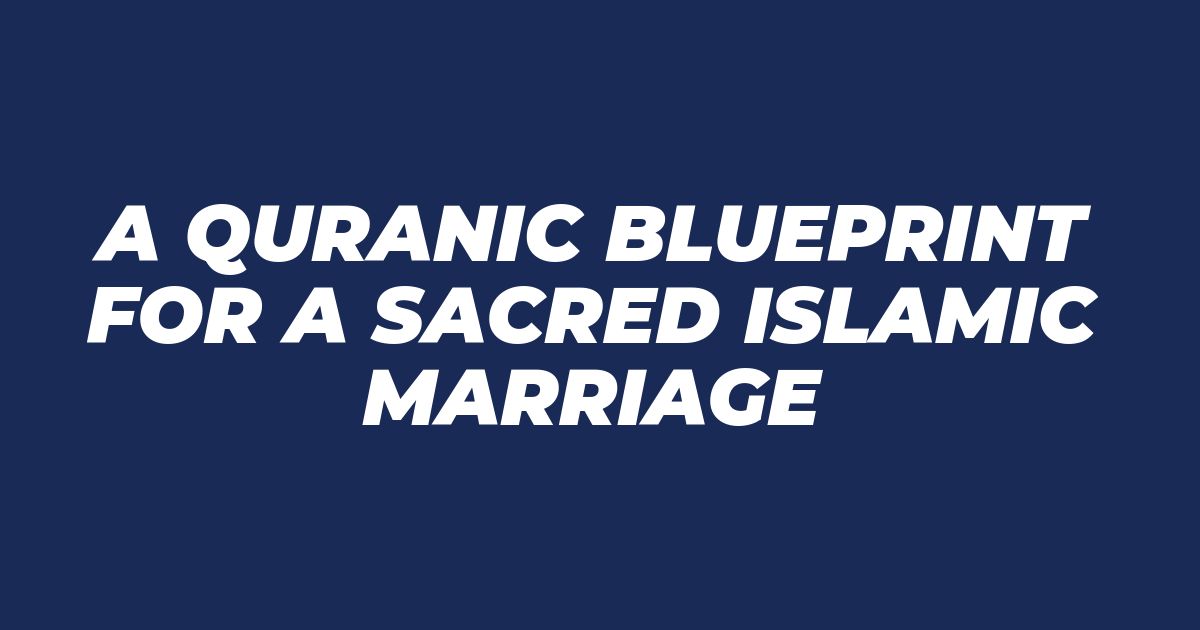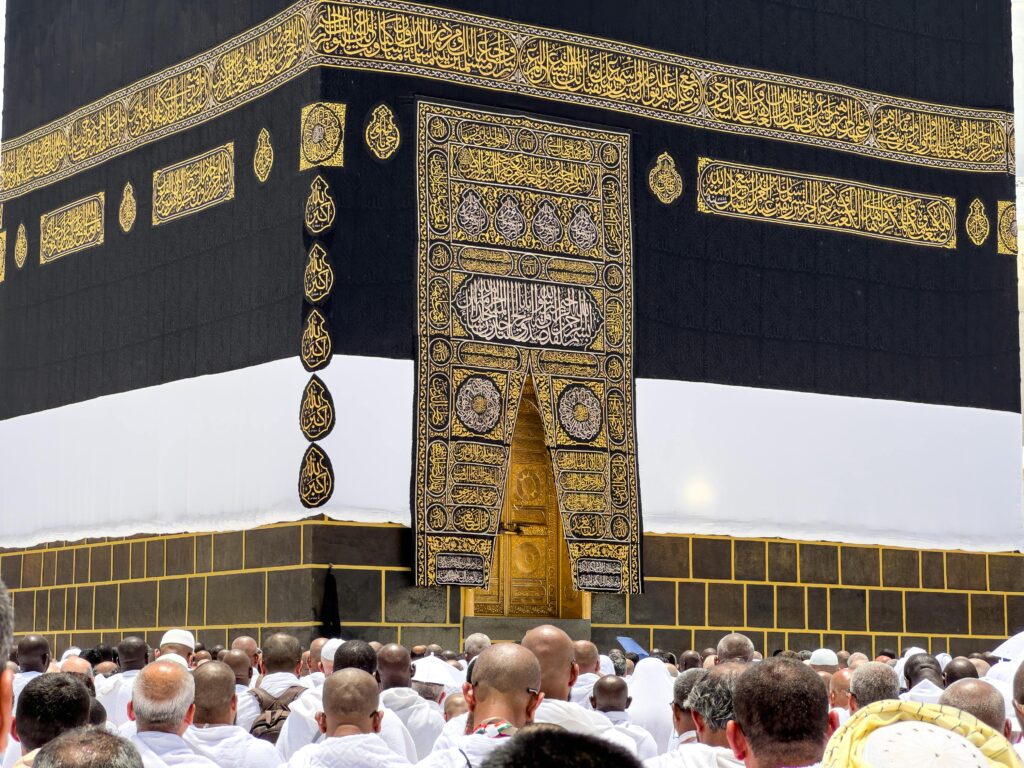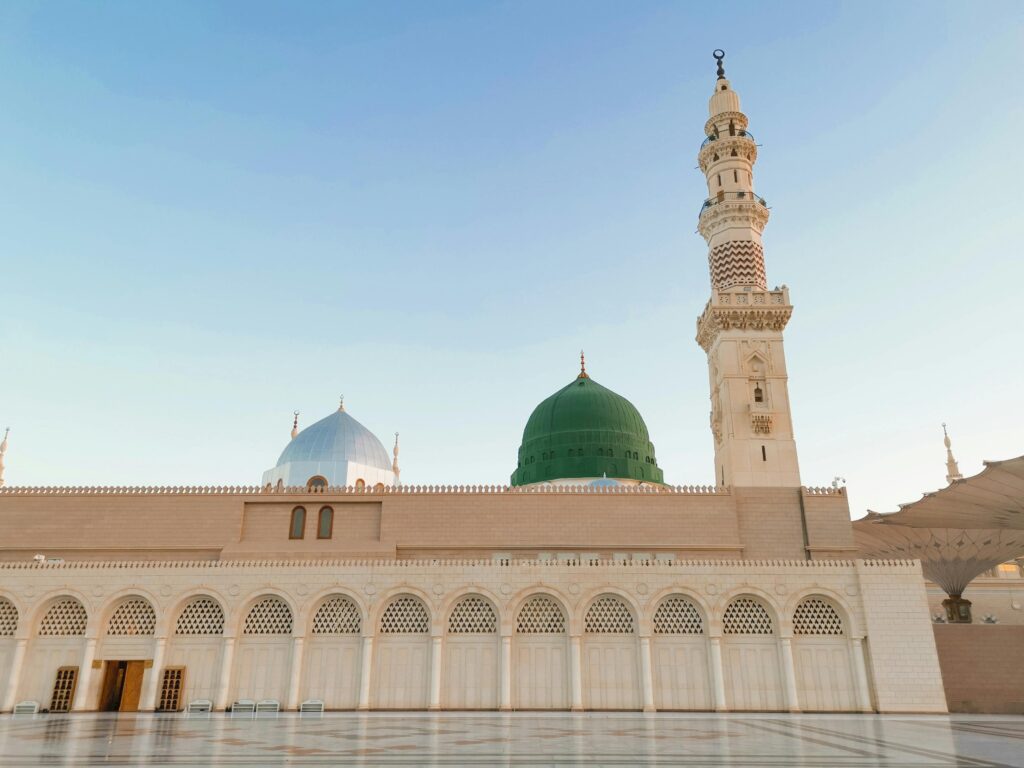Marriage in Islam: Essential Steps from the Quran for a Strong Union
Marriage in Islam is more than a social contract; it is a sacred covenant and a Sunnah of Prophet Muhammad (ﷺ). The Quran highlights the purpose of marriage as a means to find peace, love, and mercy between spouses, creating a foundation for family, social stability, and spiritual fulfillment. Surah Ar-Rum 30:21 beautifully captures this by describing spouses as created from among ourselves to bring comfort and mutual kindness.
This post will explore the key steps taught by the Quran in the marriage process, including Khitbah (engagement), Nikah (marriage contract), Rukhsati (bridal departure), and Walimah (wedding feast). Each step carries deep meaning and practical importance, shaping a union built on trust and compassion. Together, these stages form a blueprint for a strong and blessed marriage.
youtube video on Marriage in Islam: Khitbah, Nikah, Walimah
Understanding Khitbah (Engagement)
Before two hearts unite in marriage, Islam guides us through a thoughtful first step known as Khitbah, or engagement. This moment is more than a simple promise; it sets the stage where families come together, intentions are made clear, and respect grows. It is the gentle opening chapter in the marriage story, filled with hope and sincerity, but with clear boundaries and wisdom.
The Purpose and Nature of Khitbah
At its core, Khitbah is an official request made by a man to the woman he wishes to marry, accompanied by mutual acceptance. This is a period where families meet, understand, and bless the upcoming union. It is not a contract or the marriage itself, but a step toward it.
This phase allows both parties to explore compatibility with honesty and openness. It is a time for asking questions, setting expectations, and building trust without any pressure to rush. The Quran does not detail the engagement phase explicitly, yet Islamic scholars emphasize its role as a respectful process before the marriage contract (Nikah). This period honors the values of transparency and consent.
Boundaries During Khitbah
Understanding what Khitbah is not helps prevent common misunderstandings:
- It does not make the couple husband and wife.
- Intimate relations during this time are strictly prohibited.
- It is not legally binding under Islamic law, meaning the engagement can be broken without religious or legal penalties.
Mutual respect and boundaries ensure that the engagement is a safe space for both sides to honestly reflect on their choice. This prevents conflicts later and upholds the dignity of everyone involved.
Role of Families and Blessings
Khitbah in Islam often involves more than just the couple. Families blessing the union plays a key role in nurturing harmony and support. When elders come together and share hopes and values, it strengthens the foundation for what is to come.
This shared involvement helps safeguard the marriage with a support system from the start. It is like planting a seed with care, where blessings from both families provide water and sunlight to ensure it grows strong.
Breaking an Engagement
If either party feels the match is not right, they can respectfully end the engagement. This usually involves returning any gifts given, but there is no blame or penalty. Ending things at this early stage honors the principle of choosing wisely before entering the sacred contract of marriage.
This freedom allows people to protect their hearts and futures without fear or shame, making Khitbah a responsible gateway toward a lifelong commitment.
Explore further nuances about the engagement process in Islam, including varied views on customs, at Islam Q&A’s detailed engagement guide. Their explanations help clarify common questions with solid grounding in Islamic scholarship.
This step, Khitbah, acts as a pause for reflection and dialogue, not a rush into commitment. It respects feelings, honors families, and keeps the spirit of Islam’s guidance alive at every stage. It is where the promise of marriage begins, wrapped in respect and readiness.
The Nikah Ceremony: The Formal Marriage Contract
When the moment arrives to officially unite two souls in marriage, the Nikah ceremony takes center stage. In Islam, Nikah is the sacred contract that legally and spiritually binds a man and woman as husband and wife. Unlike the engagement that precedes it, Nikah is the formal step that transforms intention into reality—making the couple partners for life under Allah’s guidance.
This ceremony is not just a ritual; it is a solemn agreement sealed with mutual consent, supported by witnesses, and marked by the offering of Mahr—a gift from the groom to the bride. Every element carries meaning, establishing rights, responsibilities, and blessings that shape married life.
Mutual Consent: The Heart of Nikah
At the core of the Nikah is the mutual consent between the bride and groom. Both must agree freely and without pressure. This consent is expressed verbally through the traditional declarations called Ijab and Qubul—the proposal and acceptance spoken aloud. This clear agreement shows that marriage is a partnership based on willingness and respect, not compulsion.
The Quran emphasizes this principle, reminding us that faith and obedience flourish where freedom and choice exist. Without consent, the Nikah is invalid, which protects the dignity and rights of both parties.
The Presence of Witnesses
For the Nikah to be valid, Islam requires at least two trustworthy adult Muslim witnesses to observe the process. These witnesses confirm that the contract was entered into openly and sincerely, providing a safeguard of accountability.
Witnesses also symbolize community support. Marriage is not just a private affair; it touches families and society. Their presence connects the couple to a wider circle that will help uphold the commitments made.
The Role of the Bride’s Guardian (Wali)
Typically, the bride’s guardian (wali) plays a crucial role by overseeing the process and ensuring her best interests are protected. In many Islamic traditions, the wali’s participation safeguards the bride’s rights during Nikah, especially if she is marrying for the first time.
The wali’s presence and approval reinforce the seriousness and legitimacy of the contract. He acts like a trusted guide who balances authority with care, helping the bride enter marriage confidently and with support.
The Offering of Mahr
The Mahr is a mandatory gift from the groom to the bride. It is not just a formality but a sign of respect, security, and commitment. This gift—whether money, property, or something valuable—belongs to the bride alone. It symbolizes her financial security in the marriage.
Mahr is agreed upon before the Nikah and documented as part of the contract. In Islamic teachings, it is a reminder that marriage is a serious, respectful agreement where the bride’s rights are honored and protected.
Reciting Quranic Verses and Prophetic Traditions
The Nikah ceremony often includes the recital of Quranic verses and the Khutbah of Nikah—a brief sermon delivered by the officiant that guides the couple on their spiritual responsibilities. These words root the marriage in faith, reminding everyone present about the values of mercy, kindness, and patience.
The Khutbah sets the tone for the journey ahead, inspiring the couple to uphold their promises with sincerity and devotion.
Signing the Contract
Finally, the formal sealing of the marriage occurs through the signing of the Nikah contract. This document records the terms agreed upon, including the Mahr, and serves as legal proof of the marriage in Muslim communities.
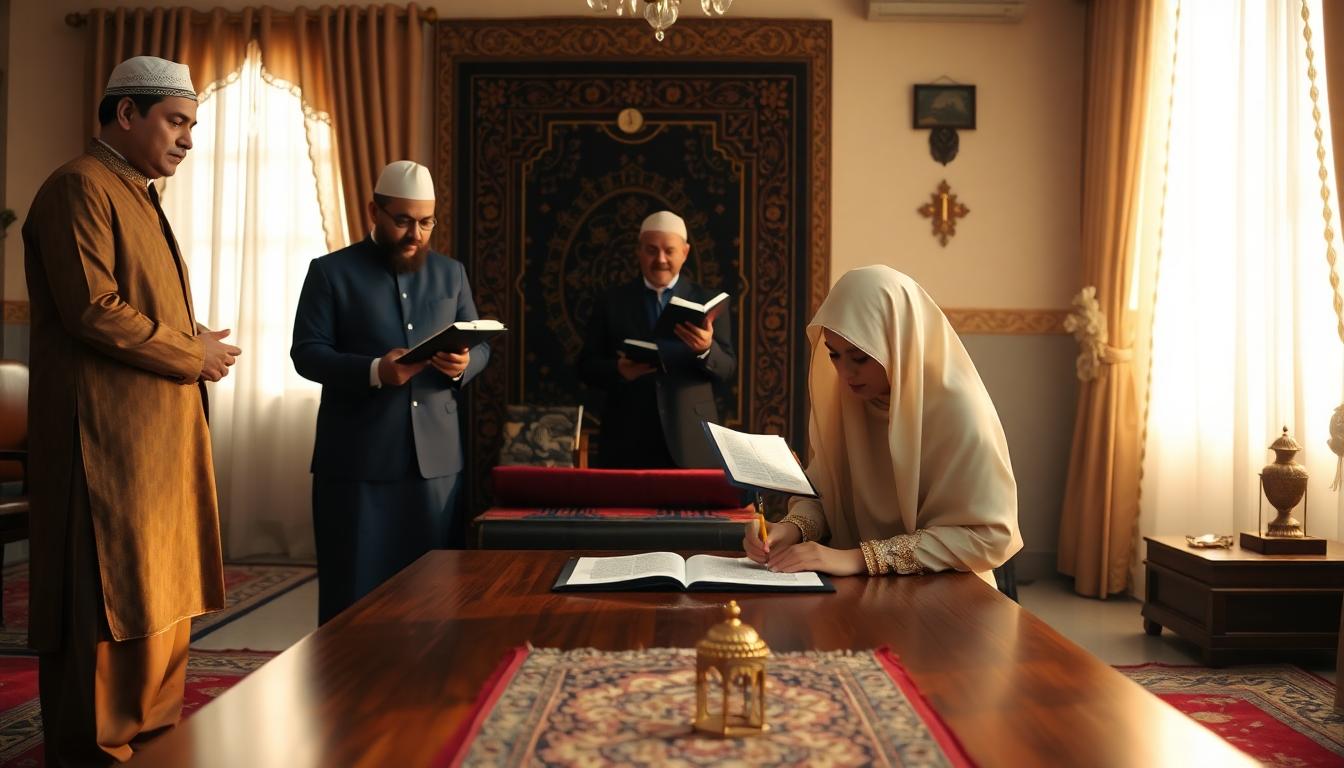 Photo created with AI
Photo created with AI
The signing is a powerful moment. It marks the transition from promise to fulfillment, from preparation to partnership. The couple is now husband and wife according to Islamic law and customs.
The Nikah contract blends spiritual meaning, legal formality, and heartfelt commitment. It protects rights, honors choices, and invites blessings. Learning its details helps couples embrace marriage with clarity, confidence, and respect, building a lasting foundation under the guidance of the Quran and Sunnah.
For more detailed guidelines, you can explore Essential Muslim Marriage Rules which breaks down these conditions with clarity. This helps couples understand the key elements that make their Nikah authentic and meaningful.
Rukhsati: The Consummation and New Beginning
Rukhsati is a deeply meaningful moment in a Muslim marriage, marking much more than just a ceremony. It is the symbolic and practical step when the bride leaves her parental home to join her husband’s household, stepping into a new phase of life. This transition signals the official start of married life, filled with hope, responsibility, and a shared journey ahead.
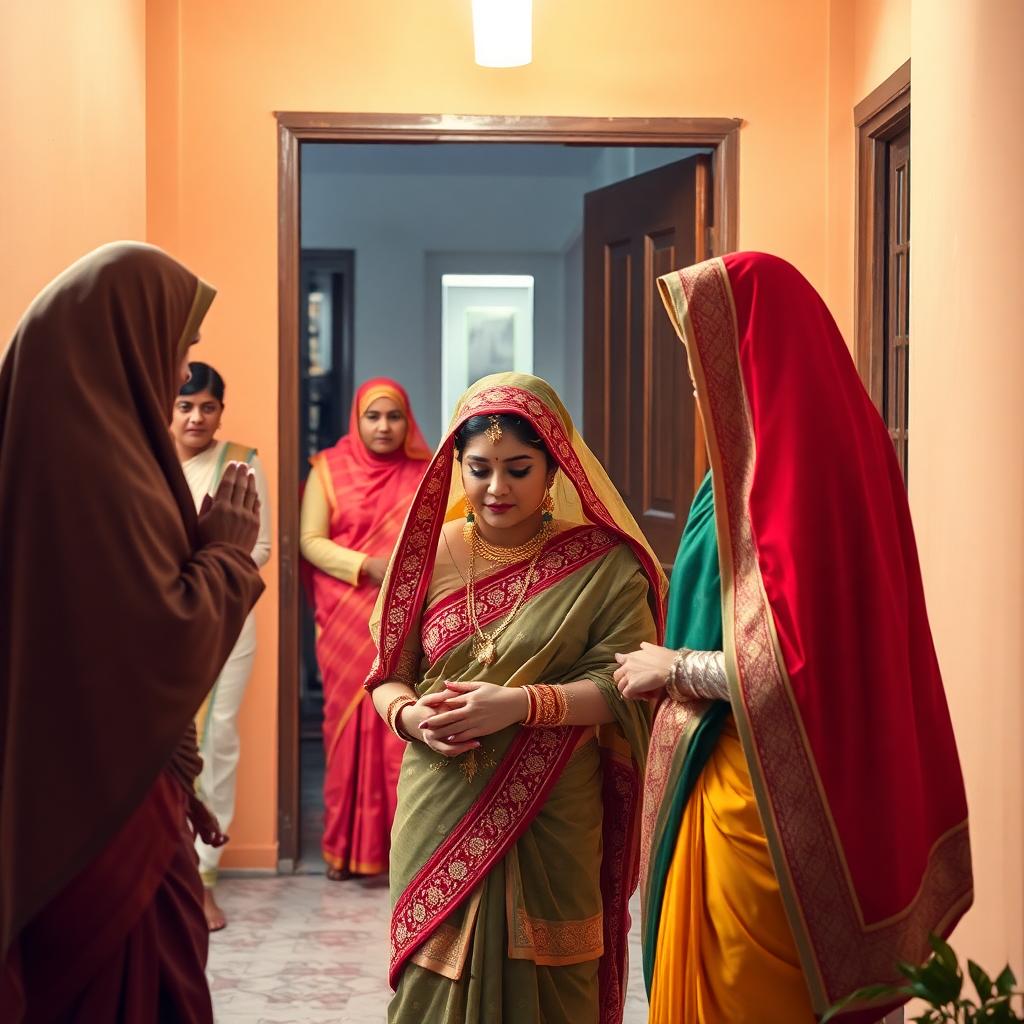
The Emotional and Social Significance
The moment of Rukhsati carries heavy emotions. It symbolizes leaving the comfort and familiarity of one’s childhood home, often accompanied by tears, prayers, and heartfelt farewells. At the same time, it celebrates the start of a new family unit, where the bride and groom embrace their roles as partners under Allah’s guidance.
This step reflects the Quran’s vision of marriage as a source of love and mercy between spouses. The couple steps into a shared life, where they support and protect each other, embodying the compassion described in Surah Ar-Rum 30:21.
Consummation: Timing and Mutual Agreement
Traditionally, Rukhsati is closely linked to consummation—the physical union that completes the marriage bond. However, Islamic teachings allow flexibility here. Couples may choose to delay consummation after Rukhsati by mutual consent, depending on circumstances like health, travel, or readiness.
It is important to understand:
- Consummation is a natural step that often follows Rukhsati.
- There is no fixed Islamic deadline to consummate the marriage.
- Both partners’ readiness and comfort are priorities.
- The marriage contract (Nikah) makes them spouse and spouse regardless of consummation timing.
This flexibility supports the Quranic principle that marriage should be a source of ease and mercy, not stress or undue pressure. Couples are encouraged to communicate openly and respect each other’s feelings during this phase.
For a detailed view on the permissibility of delaying consummation, you might find this article on Muslim Matters useful.
Cultural Variations in Rukhsati Practices
While Rukhsati’s essence is universal, its customs vary widely across Muslim communities, especially in India. Some families arrange welcoming ceremonies at the groom’s home filled with prayers and celebrations. Others keep it a private affair focused on the couple’s transition.
These cultural expressions do not contradict Islamic teachings but complement them, adding local color to the sacred process. Despite differences, the core values of mutual respect, love, and kindness remain central.
Mutual Respect, Love, and Mercy
At its heart, Rukhsati reflects the Quranic ideal of marriage: a bond rooted in kindness and compassion. The couple moves forward with the heartfelt intention to nurture each other’s well-being.
The Quran reminds us marriage is “between you, love and mercy” (Surah Ar-Rum 30:21). Rukhsati starts this chapter—a new beginning woven with sacred responsibility and shared dreams.

For an in-depth explanation of the differences between Nikah and Rukhsati, including the spiritual and legal significance, consider exploring this detailed article from Medium on Understanding Nikah and Rukhsati.
Walimah: Celebrating the Union
After the Nikah and Rukhsati, another important moment in the Islamic marriage journey is the Walimah. This is more than a simple party. It is an act deeply rooted in the Sunnah of Prophet Muhammad (ﷺ), a gathering where the newlyweds’ union is officially celebrated, shared, and blessed by family, friends, and community.
Walimah serves as a public announcement of the marriage, symbolizing joy and gratitude to Allah for bringing two people together. It is a time to spread happiness, strengthen social ties, and offer prayers for the couple’s future. Let’s explore why Walimah holds a special place in Muslim weddings and how it fits into the overall process.
The Purpose of Walimah: Sharing Joy and Seeking Blessings
Walimah is a feast hosted by the groom’s family, meant to announce the marriage openly. The Quran teaches us to share blessings and spread good news among the community, and the Walimah is a perfect example of this teaching in action.
By inviting relatives, neighbors, and friends, the couple invites everyone to partake in their happiness. This gathering cultivates goodwill and support, essential ingredients for a successful marriage. It also reflects a deep sense of gratitude to Allah for His mercy and the gift of companionship.
Flexible Timing: Before, During, or After Rukhsati
Though commonly held after the bride joins her husband’s home, the timing of the Walimah is flexible. It can take place:
- Shortly after the Nikah ceremony
- On the day of or right after the Rukhsati
- Days or weeks later, depending on family convenience and needs
This flexibility allows families to plan the celebration in ways that best suit them while maintaining its spiritual and social purpose.
Social and Spiritual Importance of Walimah
Walimah is not just a celebration but carries great social and spiritual value:
- It strengthens family and community bonds. The joy shared at Walimah often results in lasting friendships and mutual support networks.
- It fulfills a prophetic tradition. Following the example of the Prophet (ﷺ) means embracing acts that encourage unity and thankfulness.
- It reminds the couple that marriage is a shared journey. The presence of community support reinforces the idea that two lives merging affects a broader circle.
In this way, Walimah stands as a bridge between private happiness and public blessing.
What Happens at a Walimah?
The Walimah feast often includes a meal, speeches or prayers, and lively social interactions. The atmosphere is warm and welcoming, filled with smiles and well-wishes. Food is central, as sharing a meal is one of the most universal ways to connect people, celebrate, and honor tradition.
Families may also use this occasion to offer advice, reflect on the responsibilities of marriage, and remind the couple of their spiritual journey ahead.

Photo by Michael Burrows
Walimah beautifully completes the early stages of a Muslim wedding, wrapping marriage in an embrace of community, gratitude, and shared happiness. This tradition reminds us how a single union joins not only two hearts but many hands, creating a network of love and support that lasts a lifetime.
For a richer understanding of Walimah’s significance, see A Detailed Explanation of Walimah as a Sunnah which discusses the spiritual and social benefits of this celebration.
Key Principles and Obligations in Islamic Marriage
Marriage in Islam is a sacred union guided by clear principles from the Quran, which call for mutual kindness, respect, and compassion. It is a partnership where spouses protect, comfort, and support each other, just like clothes that cover, protect, and adorn. This metaphor comes directly from the Quran: “They are clothing for you and you are clothing for them” (Surah Al-Baqarah 2:187). It beautifully captures the closeness and interdependence expected between husband and wife.
Islamic marriage is not just about legal rights; it is deeply spiritual and social, balancing care for each other’s hearts and upholding responsibilities that sustain the marital bond.
Mutual Kindness, Respect, and Compassion
The foundation of marriage in Islam rests on kindness and mercy. The Quran consistently urges spouses to treat each other gently, with respect, and to nurture love and compassion. This bond is meant to be a haven from life’s stresses, where both partners find peace and comfort.
Both partners share duties like:
- Speaking kindly and avoiding harsh words
- Listening actively and addressing concerns with patience
- Providing emotional and physical support
- Encouraging each other in faith and good deeds
Each spouse’s role is centered on dignity and mutual care, forming a partnership grounded in empathy.
Marriage as a Partnership and Spiritual Contract
The marriage contract is not just a legal bond but a sacred pact before Allah. It creates a balanced team where partners protect and complete one another emotionally and spiritually.
Islamic teachings emphasize that spouses are equals in kindness and devotion, though their roles and responsibilities may differ in practical ways. The Quran reminds us that this relationship is meant to embody peace, love, and mercy, making the household a sanctuary.
Rights and Duties of Spouses
The Quran and Sunnah outline specific rights and obligations for both husband and wife to maintain harmony and justice:
| Spouse | Key Rights | Key Duties |
|---|---|---|
| Husband | Financial support, protection, respectful treatment | Provide maintenance, kindness, fairness, emotional care |
| Wife | Right to dignity, financial support, respectful treatment | Obedience in lawful matters, care of family, mutual respect |
The husband carries the responsibility for financial support and protection, while both share emotional duties like compassion, respect, and loyalty. The wife has rights to receive support and fair treatment, making her role equally valued though expressed differently.
Polygyny and Monogamy
Islam allows a man to marry up to four wives under strict conditions, as stated in the Quran (Surah An-Nisa 4:3), but this permission comes with a heavy responsibility to treat all wives justly and equally. Failing to do so is warned against strongly. For the wife, monogamy is exclusive, and her rights are protected fully.
This permission is meant to serve social justice and care in special circumstances, not personal desire alone.
Divorce and the Waiting Period (‘Iddah)
Marriage in Islam includes clear guidelines for divorce, reflecting both mercy and caution. The Quran prescribes the ‘iddah—waiting period—after divorce to allow time for reflection, reconciliation, or confirmation of pregnancy. This period protects the dignity of all involved and offers a chance for peace.
The divorce process requires fairness and kindness, honoring the spiritual contract even as the legal bond dissolves. Islam encourages reconciliation but provides lawful exit when the marriage cannot last.
This balanced and thoughtful approach to marriage—rooted in kindness, respect, and well-defined rights and duties—makes it a sacred contract designed to last. For a deeper understanding of spouses’ mutual rights and duties, explore this detailed explanation on Rights of Man and Woman in Islamic Marriage, which offers clear, trustworthy guidance based on Quran and Sunnah.
Marriage in Islam is presented as more than just a relationship; it is a lasting commitment of support, a partnership wrapped in mercy, and a reflection of spiritual harmony.
Conclusion
Marriage in Islam is a divine institution designed to nurture peace, love, and mercy between spouses. Each step—from Khitbah, where two families come together in mutual respect, to the binding Nikah contract affirming sincere consent; from the heartfelt Rukhsati marking a new chapter, to the joyful Walimah uniting communities—holds deep Quranic wisdom.
These stages protect families, honor commitments, and enrich lives with spiritual and social meaning. Viewing marriage as both a sacred bond and a social contract offers clarity and strength for couples and their communities alike.
Reflecting on these timeless teachings helps us appreciate how Islamic marriage remains a path to harmony, compassion, and shared growth in today’s world.

